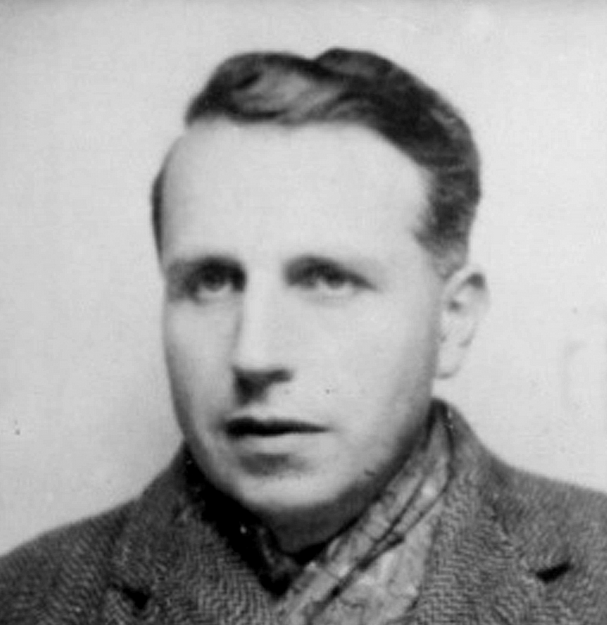I have heard that they do more than many ML parties that just end up doing bureaucratic paperwork or selling out to liberal parties. Is that true?
Why even be an anarchist when you can be an ML?
Please do tell how your so called autonomous anarchist commune is going to create complex and intricate things like supply chains without any sort of hierarchy?
They also have no plan, no solution for racism and I found this out not even a week after being an anarchist.
That being said I’m indifferent and I don’t go out of my way to dunk on them for no reason, but the moment they hit me with that “authoritarian redfash” bullshit I remind them that there’s never been a successful anarchist revolution ever and their ideology benefits the FBI cause they aren’t even a threat.
Why even be an anarchist when you can be an ML?
Because you don’t have to read anything or learn anything. Repeating “All states are bad” allows you to falsely equivalise and therefore support Western imperialism and oppression. It’s a very safe space to be a smug liberal.
Please do tell how your so called autonomous anarchist commune is going to create complex and intricate things like supply chains without any sort of hierarchy?
I mean a democratically elected workers’ council could work… but maybe all those councils from different sectors of the economy would need to be coordinated through another council… a sort of… central committee, perhaps?

Precisely 🗣️🗣️🗣️
Actually fun to hit the kickbacks with; anarchists do know how to party. When the actual work is in question, I’d say 'middlingly-useful in their actual communities; but that’s about the size of it.’ Anything macro scale in their belief system just whiffs of blatant idealism to me until capitalism has been eradicated in its entirety.
Dont get too bogged down in the anarchist/ML dialetic, its not actually that present in real life
In real life anarchists call themselves communists and communists call themselves anarchists, they both want the same thing, a stateless society; they just disagree on how to get there. Anchro-Communism is a completely valid and respectable approach, I dont follow it myself but they are closely alligned enough that any support is mutually beneficial.
Do be wary of the pseudo-anarchist, who is just in it for the aesthetics and hasnt read any theory. ‘Red fash’ is the biggest give away you’re speaking to a liberal/fash in a black hoody. Anarchists who focus on collabartion, praxis and unity can be worked with, and they represent the vast majority.
You might think otherwise from talking online, but you need to remember anarchists actually doing shit irl arent spending there time calling MLs red fash online.
deleted by creator
Yes, but ive also been reading ‘Anarchism in North East England 1882 – 1992’ and in it they talk about how anarchists and communists where working togther, debating togther and organizing togther for workers rights and material improvement.
It does achknowledge that statist anarchists, or communists managed to do more, but also that they didnt take away from the movement either. I agree there are fundemental differences, but they can be middle grounded I think if an anarchist is willing to give a little ground.
Like for example, the battle of cable street; where anarchists and communists joined forces to kick the shit out of oppo and the fash during WW2
I will say you need to take anarchists with a era and geographical perspective, in the UK anarchists where not widely anti-semitic and driven by anti-communism, like european anarchists; instead they where focused on anti-fascism, solidarity striking with workers and building alt housing for workers.
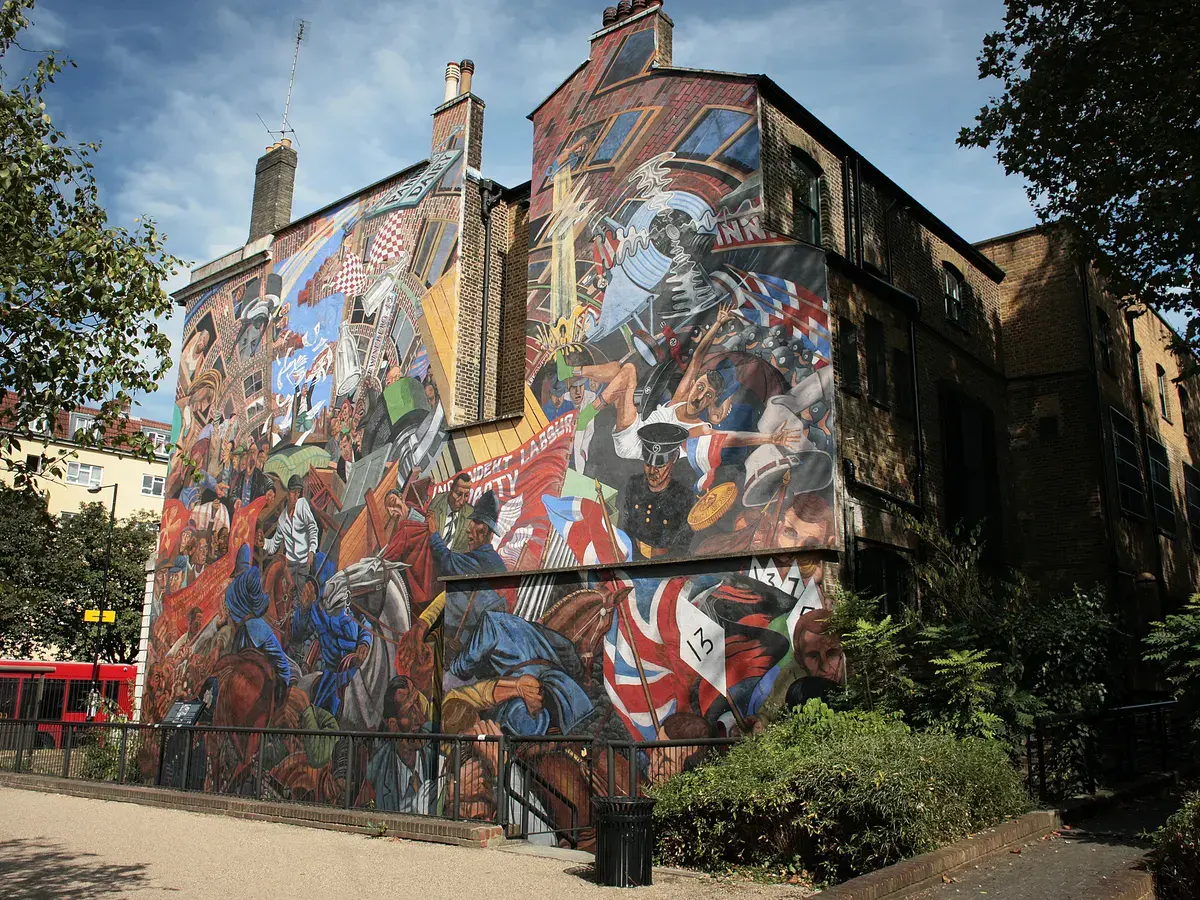
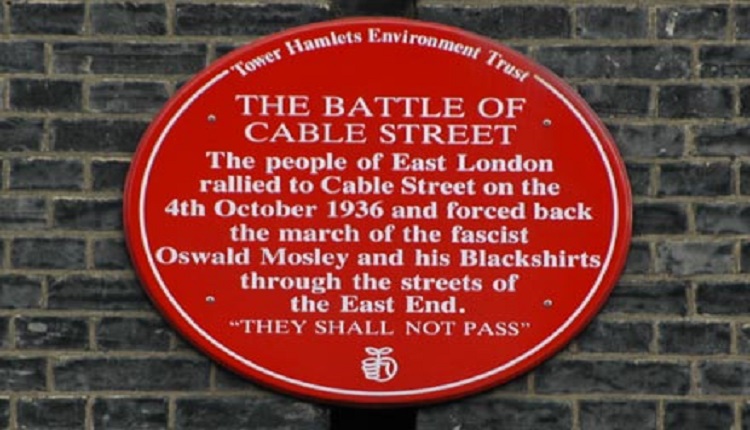
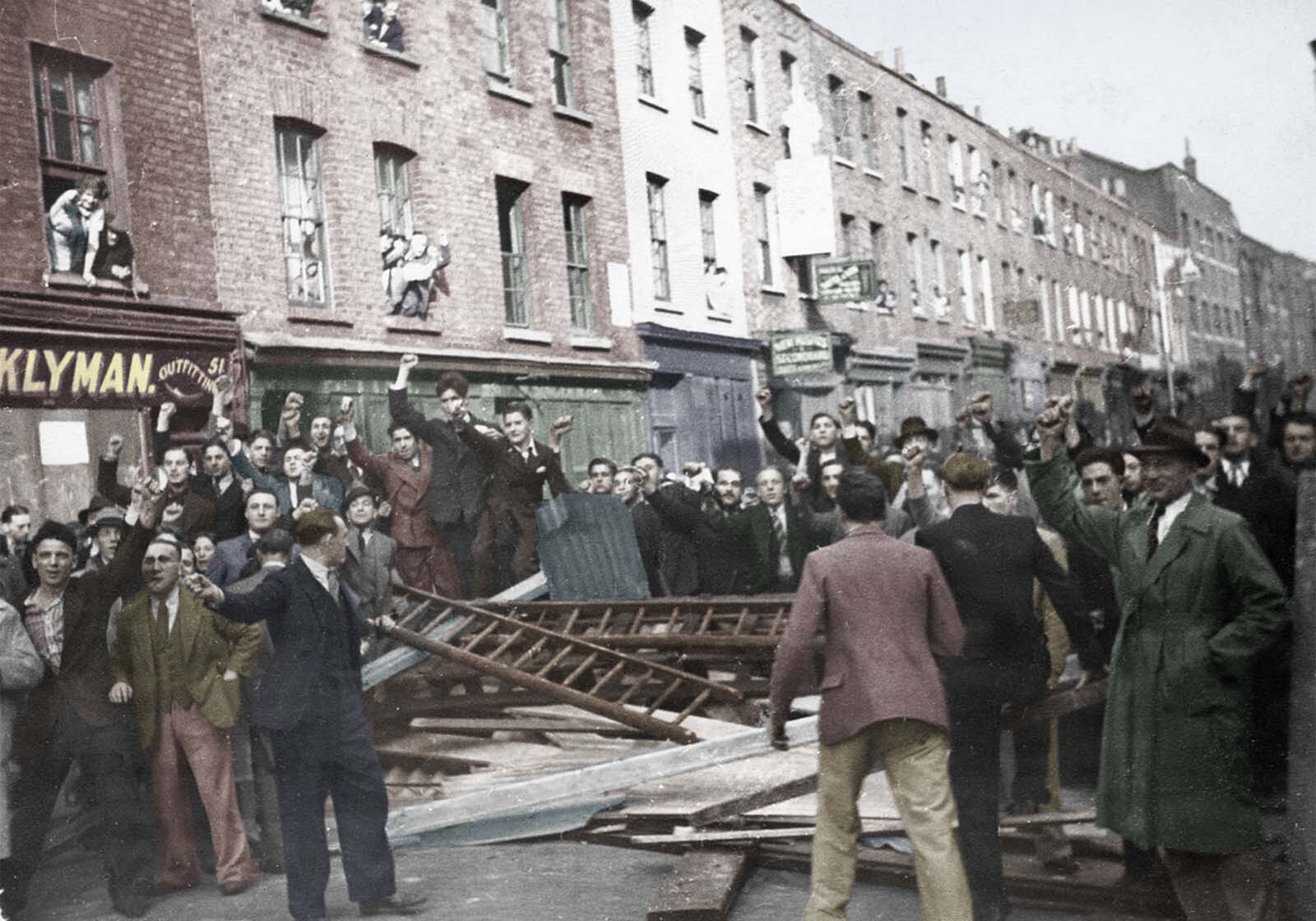
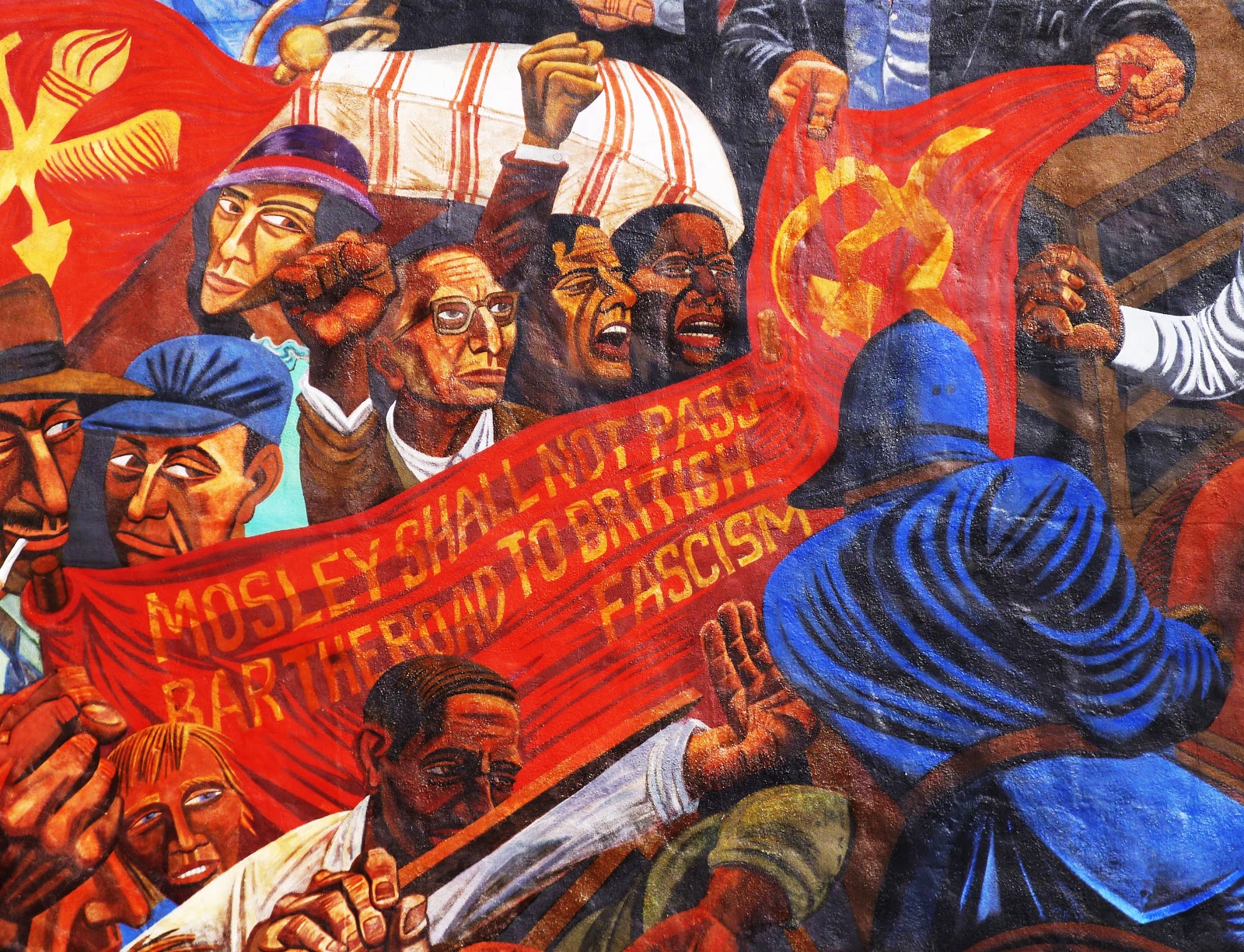
Anarcho-communists? Fairly close to ML. Every discussion I’ve had with one leads me to think that they’re Marxist but haven’t read Lenin.
Anarcho-capitalist? Clowns that need to be put on a small island to cannibalize each other. The ultimate expression of an-cap.
Any proper anarchist will tell you that anarcho-capitalists are not anarchists. Capitalism creates hierarchy, anarchy opposes it.
Yea, I know. Hence the giant contrast in my perception.
Most are well-meaning and will develop to be MLs one day. That’s how I got here, at least.
Not sure about the validity of your text, ML parties historically have done and achieved far more than anarchists could ever dream of just simply because of the organization and approach but anarchists definitely have done some cool shit.
As long as they’re an-coms I’m down to work with them and usually willing to take in their perspective, flawed as I may think it is. We usually learn from each other (in real life, ofc, online is just hurling anarkiddie and tankie back and forth) and I really think, at least in the beginning stages of revolution, the movements could help each other. Obviously as Stalin pointed out and many other comrades there are pretty irreconcilable differences between our methods and those will have to be dealt with, but we can definitely use their help to end capitalist dictatorship as we know it and probably educate them more to come over to… as arrogant as it sounds, reality. Lol
Often very cool individual people. But that’s kind of the problem. Anarchists emphasise the individual, not society. A revolutionary movement requires a lot of compromise and sacrifice that I can’t see a group of anarchists managing. They often do good work in their communities and I’d happily march side by side with them at a protest. They aren’t our enemy and tend to become MLs more easily than the general population, their revolutionary spirit is there, they just need to shed the final vestiges of capitalist hyper-individualism.
Seconding @[email protected] below.
In the imperial core, we are not at the point in the class struggle where line struggle is the principal contradiction inhibiting the left. We are not facing down white terror and anarchist sailors are refusing to consolidate the revolution. We are not in the middle of people’s war with opportunistic union leadership inhibiting the urban struggle.
We are in like the 1840s with the narodniks and the nihilists going on futile adventures in the countryside which nonetheless raise conciousness.
IMO most of the people getting lost in these debates are people who are unwilling or unable to take substantative risks but who still need to feel like they are ‘useful’ to the revolution and get into terminally online sectarian squabbling as a surrogate for political work.
In my experience anarchists tend to suffer from a mix of idealism and naivety. The general premise most anarchists seem to believe is that the state is responsible for all the problems in society, and if it was somehow abolished then people would just naturally act in cooperative and enlightened way. This appears to be premised on the assumption that most people think the way anarchists do.
There is an important question that anarchists need to answer that they either ignore or hand wave away. First one being why centralized and hierarchical structures keep arising in human societies time and again. After all, humanity started in what are effectively anarchist societies when we lived in small tribes. So, why is it that we see centralization inevitably appear, and why don’t we see any successful large scale societies in existence based on the ideals of anarchism.
The answer is of course that there are selection pressures that favor centralization. On Authority from Engels explains these pressures very eloquently. So, we see societies that embrace centralization end up outcompeting those that do not.
I look up to and deeply respect some bona-fide heroes among the anarchists. maia arson crimew leaked the no-fly list. I know another who exposes sexual predators. But individual heroes do not lift millions out of poverty.
Anarcho-communists/socialists are generally cool people. Anarcho-capitalism, on the other hand, is easily one of the most unrealistic ideologies out there and whenever I meet someone who calls themselves as such (which isn’t often thankfully) they immediately lose all credibility in my eyes
I don’t usually use forums or lemmy, I usually just post comments on Ancap blogs like Molyneux or Cantwell’s blog, but they didn’t seem appropriate places to post my story. So here goes, I just wanted to share this with all of you.
Nov 3 I flew to Europe for a Eurotrip type tour. Not a guide or packaged deal, just going around by myself. I paid for half of the trip with the wages I earned over the last two years, my dad paid for the other half. I am 19, I guess that is normal starting college and all. (Before that I worked for my dad’s company part time, so I guess you could say he paid for all of it, lol).
I did France and then Italy and then Greece next. I am an Ancap so I wanted to see anarchists in these places. Yes, I know they are different kinds of “anarchists” and not really full anarchists like us. I went to an anarchist book store in Italy and it had a lot of English books, but no Rothbard or Ancap. Like I said, I expected that, not a surprise.
I went to Greece, which everyone knows is famous for its revolutionary anarchism, its economic crisis and everything going on right now. Here I found directions for a local anarchist center. I went and didn’t see anybody, but it was covered in graffiti, mostly in Greek so I couldn’t read it. Whatever, I started taking pictures. Then some people came out and confronted me.
This should have been my first warning sign something was not right, because photography is not a crime. They were not violent, but they were not friendly, like asking who I was, what I wanted. They all spoke good English actually. Not uncommon in Greece. I said I was a tourist and an anarchist and I just wanted to take pictures. Then they got friendly and told me I should have asked first (but pictures are no NAP violation so I don’t know why, but I didn’t say anything) and they invited me inside.
We hung out for a while and smoked hash (there is no good dank in Europe as you might find out like in Cali, everyone smokes hash with tobacco which isn’t as cool as it sounds). We started talking about politics and anarchism. I was trying to talk about the state, they were like yeah no doubt the state was bad. But they wanted to talk about capitalism, capitalism this and that. This is when we started to get into a debate.
I told them that what they called capitalism is different from the free market. They said capitalism is free markets. And I said I agreed. That is what I am saying. Real capitalism is free markets. And they said yes, that is what we are trying to get rid of. And I said no, but we don’t even have that right now. We need more free markets. And everyone at the same time was like “nooo” we are anarchists, we are against capitalism. Anarchists oppose capitalism.
And I said but not anarcho-capitalists. Anarcho-capitalists are the anarchists who support capitalism. I had a fanny pack (yeah, lame I know) for my camera and in that I had this yellow and black bowtie (also super lame, it was a joke but I wasnt wearing it). And I said look, these are the Ancap colors, yellow and black, like versus the communist red and black. Well, these guys had a lot of red and black in the building already so I thought they would get it.
I think that is when it started to get a really bad vibe, really tense in the air. The free market thing was funny, we disagreed but I think they thought I was just confused. Everyone was uncomfortable now. Then someone said markets wont work with democracy. And I said exactly, that’s it, democracy is against anarchism. And they kind of agreed, and said yes, we don’t have real democracy, just governments, and we needed more democracy. I said no, we need less democracy, democracy is the enemy. And we need to end democracy to have anarchy. Then they were all like “noooo” again. You know that thing people do in groups when everyone all says “nooo” or expresses some disapproval at the same time.
And one of them said “but we do want to stop democracy” and then they kind of spoke back and forth in Greek. I didn’t really understand it. And they asked me what I meant.
So I said okay, I had the floor, I was going to tell them about ancapism. And I tried to explain to them some Rothbard and Hoppe. I said the natural order in anarchy is that the best rise to the top, the market picks who is the best. They compete and are peaceful. They said what do we want instead of anarchy. I said we want private owners to own their own land and businesses, and to employ people. They said that is what we have now. I said no, it would be even better. One of the guys said it was like feudalism. And I said it is not feudalism.
Eventually one of the guys spoke up and I thought he was Greek, but he spoke English perfectly so he may have not been. He said he knew what anarcho-capitalism was and that we were basically fascists. He asked me if I thought everything should be private. And I said yes. And he asked me if I thought people were unequal. And I told him yes. And that not everyone would have equal rights. I said everyone has the right to own property and not be done aggression against. But that not everyone had to be treated equally by the owners. He said what about immigrants and racism. And I said that would not happen in a free market, but yes property owners could be racist if they wanted to. They had to respect property.
Then he called me a fascist again, and someone else said I was a fascist. And then they basically all started shouting fascist at me, and one of them grabbed me by the wrists. They pulled me out the door, it was up three floors, and basically drug me down the stairs on my back. It hurt really bad and I remember yelling “you’re breaking the NAP” and things like that. “Stop initiating force against me.” Then they kicked me around on the ground in the hallway, before they took my camera and threw me outside. I was crying and stuff, I just sat there. I was in shock because it was so sudden. Looking back there were warning signs though.
I think they felt bad for me and gave the camera back, but when I looked later they stole the memory card with all of my Greek photos.
So they initiated force and theft. They broke the NAP. I knew the left anarchists were not real anarchists, but I never knew they would do something that bad.
I wasnt seriously hurt, just kicked around a little, lots of bruises and little cuts. I am fine guys so don’t worry. Just needed to share.
I’m dead lmao imagine an ancap getting his ass kicked and crying that’s like the epitome of ancapism
He simply wasn’t providing enough to the people around him and the market took care of him. Human nature!
I’m so glad this became a copypasta.
Anarchists in a general sense to me seem to be individualistic idealists that tend to be well-meaning but don’t really do much shit on a macro scale, micro’s fine but that’s it really, that and they tend to be used by Amurikan three-letter agencies against socialist movements
When they’re ancoms, they tend to be like, a mix of what I described anarchists in a general snese and Marxists who haven’t read Lenin or Engles or what not, they tend to be sympathetic to commies and/or AES states usually and can be convinced to be MLs. They tend to be cool, but not practical enough to affect shit in the grand scheme of things.
Ancaps, on the hand. Are just fucking- why? They’re a walking contradiction, at least with ancoms, I can see some sort of coherency there (despite being just commies who want to skip the socialist stage in economic production). Ancaps meanwhile, want a stateless society, with an economic system that produces hierarchy with the trademark sticker on it- what. Tldr: They tend to be uncool.
people who have adopted broad left values (anti-capitalism, working class solidarity/liberation, etc.) but lack a sufficient understanding of marxism and theory in general. theory takes backseat to chanting slogans and action, which is useful in limited cases, but obviously it means their actions are often misguided and ultimately worthless for the proletarian cause (see: CHAZ or CHOP or whatever, largely an anarchist thing from what i remember). so sure, you can sometimes see them just doing more in general, but their actions are without regard for any strategy and instead just seek to do whatever seems good in the moment. however, in the worst cases, they are active reactionaries who seek to cause divisions with us “tankies” because the inherently “authoritarian” nature of the proletarian liberation struggle clashes with their teenage-brained “fuck authority! fuck the state!” ideology and actively spread imperialist misinformation about AES.
I’ve made a post on it which I’ll summarize here.
I feel that the draw towards anarchism is two-fold. On the one hand, anarchists suffer none of the consequences of aligning with AES states socially or politically, which can make them appealing to people who have bought into the propaganda about the Soviet Union and China and/or don’t want to suffer the stigma of being a “red fash tankie.” On the other hand, the nice thing about successful anarchist movements being few and far between is that the ideas and principles of anarchism become unfalsifiable. By avoiding the falsifiability of aligning with AES states, there’s not really anything to criticize.
Needless to say, I don’t really have much respect for anarchists. The only good thing about anarchism is its potential as a stepping stone to actual socialist and communist ideology.
As for “selling out,” I genuinely have no clue where you heard that. If anyone has sold out, it’s the anarchists, as evidenced by MKULTRA.
They’ll be more useful when their trust funds finally run out.
Do anarchists tend to be wealthy?
In the wider world, I have no idea. But the ones back home were about 80% upper/upper-middle class kids who didn’t like their parents bossing them around. The other 20% were hard working folk who just had no historical or political knowledge, but still gave it their all.
On Authority by Friedrich Engels
A number of Socialists have latterly launched a regular crusade against what they call the principle of authority. It suffices to tell them that this or that act is authoritarian for it to be condemned. This summary mode of procedure is being abused to such an extent that it has become necessary to look into the matter somewhat more closely.
Authority, in the sense in which the word is used here, means: the imposition of the will of another upon ours; on the other hand, authority presupposes subordination. Now, since these two words sound bad, and the relationship which they represent is disagreeable to the subordinated party, the question is to ascertain whether there is any way of dispensing with it, whether — given the conditions of present-day society — we could not create another social system, in which this authority would be given no scope any longer, and would consequently have to disappear.
On examining the economic, industrial and agricultural conditions which form the basis of present-day bourgeois society, we find that they tend more and more to replace isolated action by combined action of individuals. Modern industry, with its big factories and mills, where hundreds of workers supervise complicated machines driven by steam, has superseded the small workshops of the separate producers; the carriages and wagons of the highways have become substituted by railway trains, just as the small schooners and sailing feluccas have been by steam-boats. Even agriculture falls increasingly under the dominion of the machine and of steam, which slowly but relentlessly put in the place of the small proprietors big capitalists, who with the aid of hired workers cultivate vast stretches of land.
Everywhere combined action, the complication of processes dependent upon each other, displaces independent action by individuals. But whoever mentions combined action speaks of organisation; now, is it possible to have organisation without authority?
Supposing a social revolution dethroned the capitalists, who now exercise their authority over the production and circulation of wealth. Supposing, to adopt entirely the point of view of the anti-authoritarians, that the land and the instruments of labour had become the collective property of the workers who use them. Will authority have disappeared, or will it only have changed its form? Let us see.
Let us take by way of example a cotton spinning mill. The cotton must pass through at least six successive operations before it is reduced to the state of thread, and these operations take place for the most part in different rooms. Furthermore, keeping the machines going requires an engineer to look after the steam engine, mechanics to make the current repairs, and many other labourers whose business it is to transfer the products from one room to another, and so forth. All these workers, men, women and children, are obliged to begin and finish their work at the hours fixed by the authority of the steam, which cares nothing for individual autonomy. The workers must, therefore, first come to an understanding on the hours of work; and these hours, once they are fixed, must be observed by all, without any exception. Thereafter particular quarise in each room and at every moment concerning the mode of production, distribution of material, etc., which must be settled by decision of a delegate placed at the head of each branch of labour or, if possible, by a majority vote, the will of the single individual will always have to subordinate itself, which means that questions are settled in an authoritarian way. The automatic machinery of the big factory is much more despotic than the small capitalists who employ workers ever have been. At least with regard to the hours of work one may write upon the portals of these factories: Lasciate ogni autonomia, voi che entrate! [Leave, ye that enter in, all autonomy behind!]
If man, by dint of his knowledge and inventive genius, has subdued the forces of nature, the latter avenge themselves upon him by subjecting him, in so far as he employs them, to a veritable despotism independent of all social organisation. Wanting to abolish authority in large-scale industry istantamount to wanting to abolish industry itself, to destroy the power loom in order to return to the spinning wheel.
Let us take another example — the railway. Here too the co-operation of an infinite number of individuals is absolutely necessary, and this co-operation must be practised during precisely fixed hours so that no accidents may happen. Here, too, the first condition of the job is a dominant will that settles all subordinate questions, whether this will is represented by a single delegate or a committee charged with the execution of the resolutions of the majority of persona interested. In either case there is a very pronounced authority. Moreover, what would happen to the first train dispatched if the authority of the railway employees over the Hon. passengers were abolished?
But the necessity of authority, and of imperious authority at that, will nowhere be found more evident than on board a ship on the high seas. There, in time of danger, the lives of all depend on the instantaneous and absolute obedience of all to the will of one.
When I submitted arguments like these to the most rabid anti-authoritarians, the only answer they were able to give me was the following: Yes, that’s true, but there it is not the case of authority which we confer on our delegates, but of a commission entrusted! These gentlemen think that when they have changed the names of things they have changed the things themselves. This is how these profound thinkers mock at the whole world.
We have thus seen that, on the one hand, a certain authority, no matter how delegated, and, on the other hand, a certain subordination, are things which, independently of all social organisation, are imposed upon us together with the material conditions under which we produce and make products circulate.We have seen, besides, that the material conditions of production and circulation inevitably develop with large-scale industry and large-scale agriculture, and increasingly tend to enlarge the scope of this authority. Hence it is absurd to speak of the principle of authority as being absolutely evil, and of the principle of autonomy as being absolutely good. Authority and autonomy are relative things whose spheres vary with the various phases of the development of society. If the autonomists confined themselves to saying that the social organisation of the future would restrict authority solely to the limits within which the conditions of production render it inevitable, we could understand each other; but they are blind to all facts that make the thing necessary and they passionately fight the world.
Why do the anti-authoritarians not confine themselves to crying out against political authority, the state? All Socialists are agreed that the political state, and with it political authority, will disappear as a result of the coming social revolution, that is, that public functions will lose their political character and will be transformed into the simple administrative functions of watching over the true interests of society. But the anti-authoritarians demand that the political state be abolished at one stroke, even before the social conditions that gave birth to it have been destroyed. They demand that the first act of the social revolution shall be the abolition of authority. Have these



